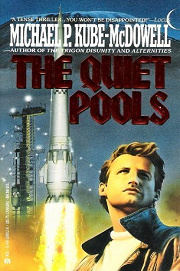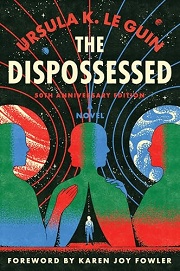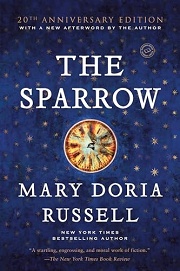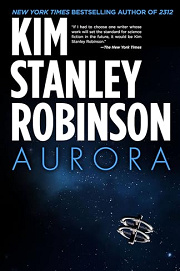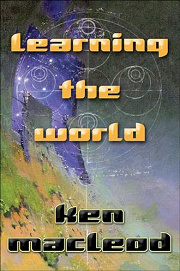Share your thoughts in a quick Shelf Talk!
The Quiet Pools by Michael P. Kube-McDowell
“As Earth looks to the stars for its next chapter, one family is caught between duty, ethics, and the price of leaving home behind. Thoughtful and intimate, The Quiet Pools explores the human side of spacefaring dreams—and the sacrifices they demand.”
Have you read this book? Share what you liked (or didn’t), and we’ll use your answers to recommend your next favorite read!
Love The Quiet Pools but not sure what to read next?
These picks are popular with readers who enjoyed this book. Complete a quick Shelf Talk to get recommendations made just for you! Warning: possible spoilers for The Quiet Pools below.
In The Quiet Pools, did you enjoy ...
... the sociological lens on colonization ethics, public policy, and who gets to build a new world?
The Dispossessed by Ursula K. Le Guin
If the public debates, selection criteria, and culture-wide arguments over who should leave Earth for the stars in The Quiet Pools drew you in, you’ll love how The Dispossessed frames an entire interplanetary conversation around how societies are built. Le Guin turns ideological dispute into drama, following physicist Shevek as his groundbreaking work becomes a flashpoint for politics, migration, and the costs of utopia—echoing those high-stakes hearings, PR battles, and street-level unrest you saw around the diaspora program.
... behind-the-scenes power plays, policy battles, and the shaping of a society through science?
Cyteen by C. J. Cherryh
If the committee fights, information warfare, and strategic messaging around the diaspora initiative in The Quiet Pools hooked you, Cyteen dives even deeper into realpolitik. Cherryh’s power brokers and scientists maneuver through hearings, dossiers, and long-game agendas as a whole civilization’s future is engineered in labs and ministries—mirroring the way the colonization project in The Quiet Pools is won or lost in offices, conferences, and carefully staged public moments.
... the moral costs of exploration—and who bears them when a grand mission meets human limits?
The Sparrow by Mary Doria Russell
If you were absorbed by the ethical knots in The Quiet Pools—from gatekeeping who gets a berth to the fallout when ideals meet public fear—The Sparrow brings those dilemmas into first contact. Russell follows a mission whose noble intentions collide with unintended harm, sifting through accountability, consent, and responsibility after the fact—the same questions raised when the diaspora’s lofty vision triggered backlash and tragedy.
... multi-angled views of a colonization effort—from planners and passengers to the system that carries them?
Aurora by Kim Stanley Robinson
If you appreciated how The Quiet Pools braided perspectives—from architects of the program to families caught in the crossfire—Aurora gives you a starship’s worth of angles. Robinson threads voices across generations and even the ship’s own systems as a colonization plan confronts ecological limits and human expectation, echoing the way competing viewpoints in The Quiet Pools reframed what the mission meant at each step.
... big-idea debate about the purpose and consequences of settling the cosmos?
Learning the World by Ken MacLeod
If the philosophical soul of The Quiet Pools—the arguments over whether humanity should spread out at all, and what we owe those left behind—was your sweet spot, Learning the World sets that dialogue against a first-contact backdrop. MacLeod pits colonists’ manifest-destiny assumptions against local realities and internal dissent, mirroring the way the diaspora’s justifications in The Quiet Pools were tested by public scrutiny and hard outcomes.
Unlock your personalized book recommendations! Just take a quick Shelf Talk for The Quiet Pools by Michael P. Kube-McDowell. It’s only a few questions and takes less than a minute.
